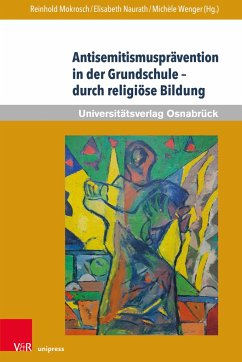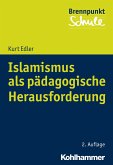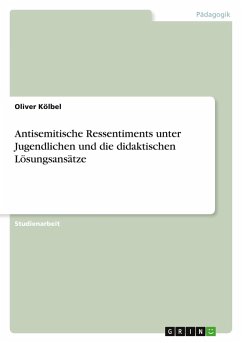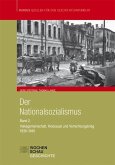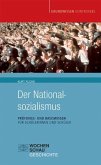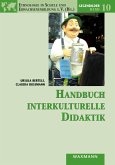Für den deutschen Kontext ist bislang weitgehend unerforscht, wie sich antisemitische Einstellungen bei Kindern bilden. Aber bereits bei den Sechs- bis Zwölfjährigen prägen sich spätere jugendliche Erscheinungsformen von antisemitischen Einstellungen. Hierbei kommt der religiösen Bildung im Grundschulkontext eine besondere Bedeutung zu, denn das Thema 'Judentum' ist für die höheren Grundschulklassen fest in den Lehrplänen verankert und dies führt für viele Schüler_innen zu einer Erstbegegnung mit jüdischer Geschichte, Theologie, Tradition und Kultur - eventuell auch zu einer ersten dialogischen Begegnung mit Menschen jüdischen Glaubens oder dem Besuch einer Synagoge. Dieser Band ist ein evidenter Schritt zu einer friedenspädagogisch motivierten Reform für den Religionsunterricht in der Grundschule: Stärker als bisher gesehen und umgesetzt, steht der Unterricht vor der gesamtgesellschaftlich bedeutsamen Herausforderung antisemitische Präventionsarbeit zu leisten!
Even though it is still largely unexplored in the German context whether and how anti-semitic attitudes develop in children, it must be assumed that the roots for later forms of these prejudices in schoolyards and in classrooms are already growing among the six-to-twelve-year-olds. In this context, religious education is of particular importance in the context of primary schools, because the topic of Jewism is firmly anchored in the curricula for the higher elementary school classes and this may lead for many students to a first encounter with Jewish history, theology, tradition and culture - possibly also to a first dialogical encounter with people of Jewish faith or a visit to a synagogue. In this respect, this volume is a step towards a peace education-motivated reform for religious education in primary school: religious education is facing the challenge of doing anti-Semitic prevention work that is of major importance for society as a whole, and is stronger than previously seen and implemented!
Even though it is still largely unexplored in the German context whether and how anti-semitic attitudes develop in children, it must be assumed that the roots for later forms of these prejudices in schoolyards and in classrooms are already growing among the six-to-twelve-year-olds. In this context, religious education is of particular importance in the context of primary schools, because the topic of Jewism is firmly anchored in the curricula for the higher elementary school classes and this may lead for many students to a first encounter with Jewish history, theology, tradition and culture - possibly also to a first dialogical encounter with people of Jewish faith or a visit to a synagogue. In this respect, this volume is a step towards a peace education-motivated reform for religious education in primary school: religious education is facing the challenge of doing anti-Semitic prevention work that is of major importance for society as a whole, and is stronger than previously seen and implemented!

